Tycho
AFK Forum Warrior
- Joined
- Jul 31, 2011
- Messages
- 3,240
Well, this is my first RFC story to present to the forums, a break from the character oriented approach in Hammer and Steel, but nonetheless I will make it as good as possible. Played as Rome during it's standard start, so I hope you enjoy the following thread. If you are wondering why I'm doing this and Hammer and Steel at the same time... I can not honestly answer that question other than to say that I do not plan on abandoning either story.
So now, I present to you.....
ROME: THE CONQUERING EMPIRE
Part 1: The Founding of Rome
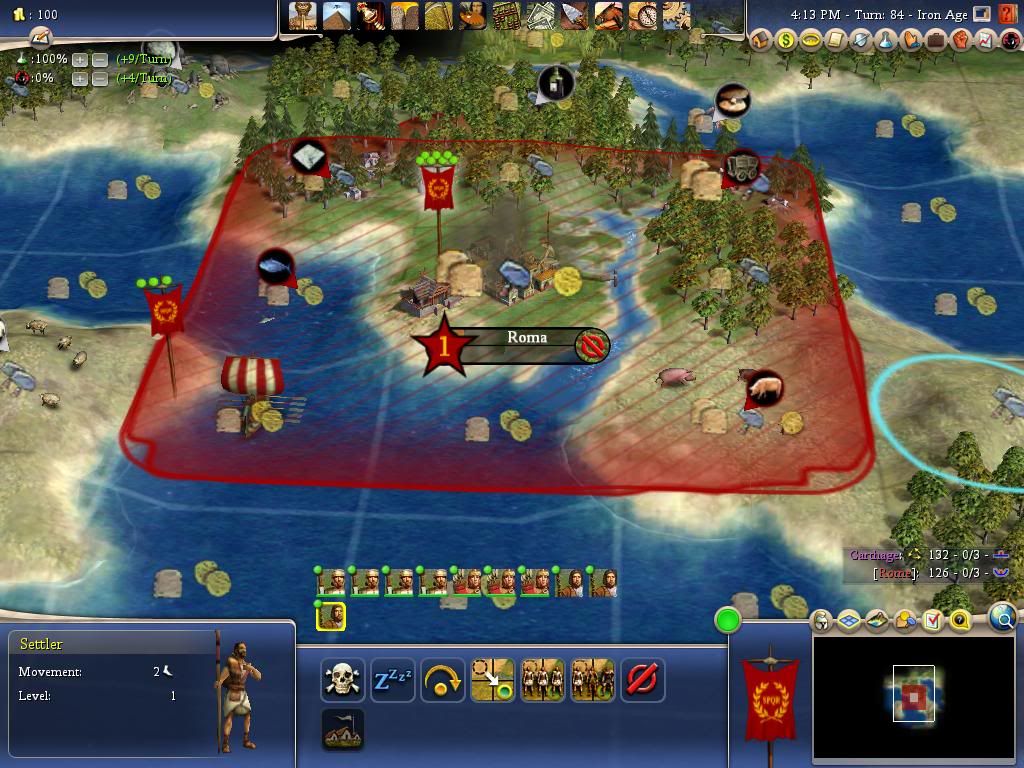
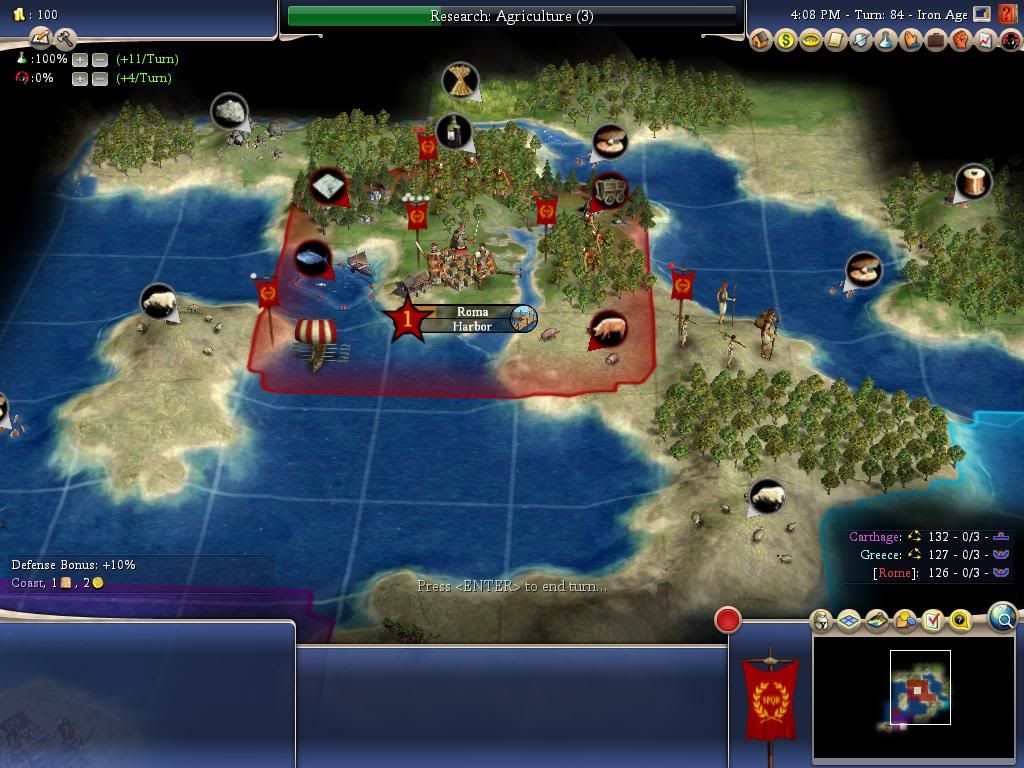
Rome. The Eternal City, said to have been founded by the brother Romulus after having a fit of rage and stabbing his brother to death, burying him under the area where the city was later established. Historians have collected countless amounts of texts, scripts, books, and tomes of lore and history from the very start of the Roman people to the present day.
Most historians today now believe that the city of Rome was not founded after the brother Romulus stabbed his brother Remus, but rather it grew up as a trading town on the Italian peninsula, the crossroads between the Northern area of the strip of land, and the southern heel of the rocky area. Wandering peoples established their city on the present ground of Roman territory, influenced by the Etruscan society who had taught them how to use metal weapons, make houses and structures out of brick and stone instead of wood and thatch, and taught them the trappings of past technology. Before the Roman people killed them of course, cutting them down like so much wheat before a scythe. But that is for a different story, a different book.
Rome's location was a prominent one here in the world, the center of the known world people like the Greeks and the Carthaginians had said, as well as the Phoenicians. According to Greek legends, when the fall and the sacking of the city state once known as Troy occured, Aeneis and his wife, grandparents, and children fled along with a few other survivors on a galley southward out of Anatolia, away from the treacherous Greeks. They sailed along the Mediterranean coast, going to Carthage, before finally settling around the spot that one day became Rome, with Etruscan help along the way. Of course, at the same time the text that describes the travels of the exiled people of Troy was told by the legendary poet Alan Poe in 29 B.C., so the details of that legend are a little sketchy. Nonetheless, Rome's northern position above Carthage allowed it have bountiful trade routes to enjoy with the Tunisian neighbor.
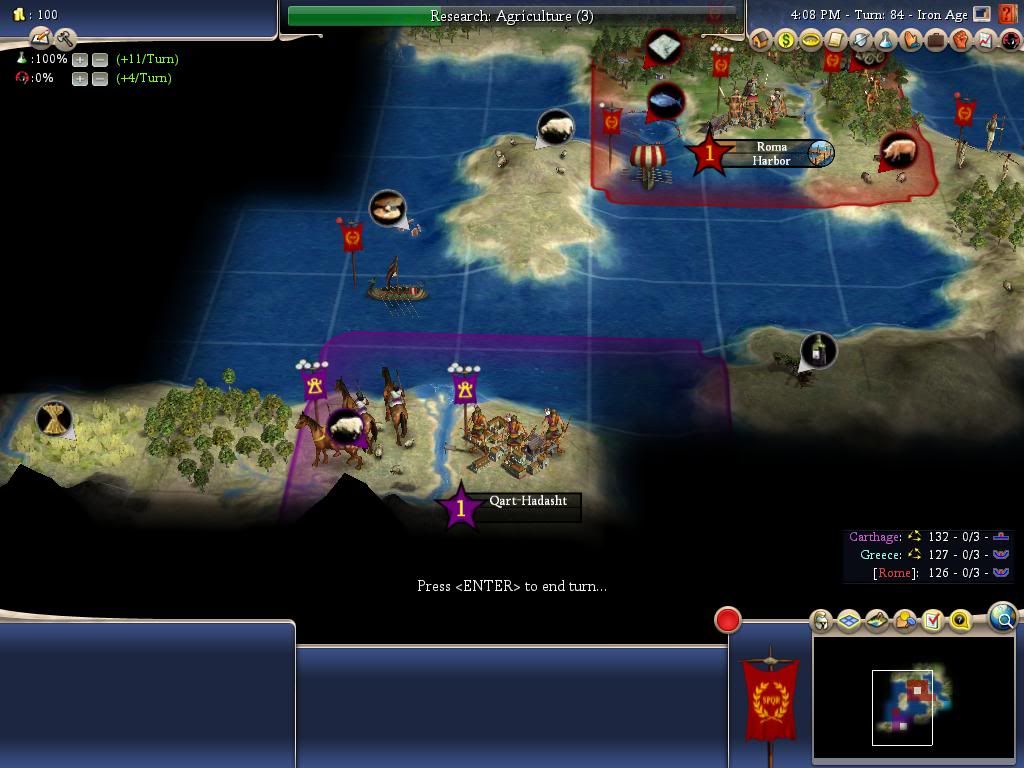
After the founding of Roma, several legions of Praetorians moved northward with a group of settlers to see if they could settle the rest of the surrounding lands of the Italian peninsula. After five or so years of hard marching, they reached the outskirts of the Celtic settlement of Melpum.
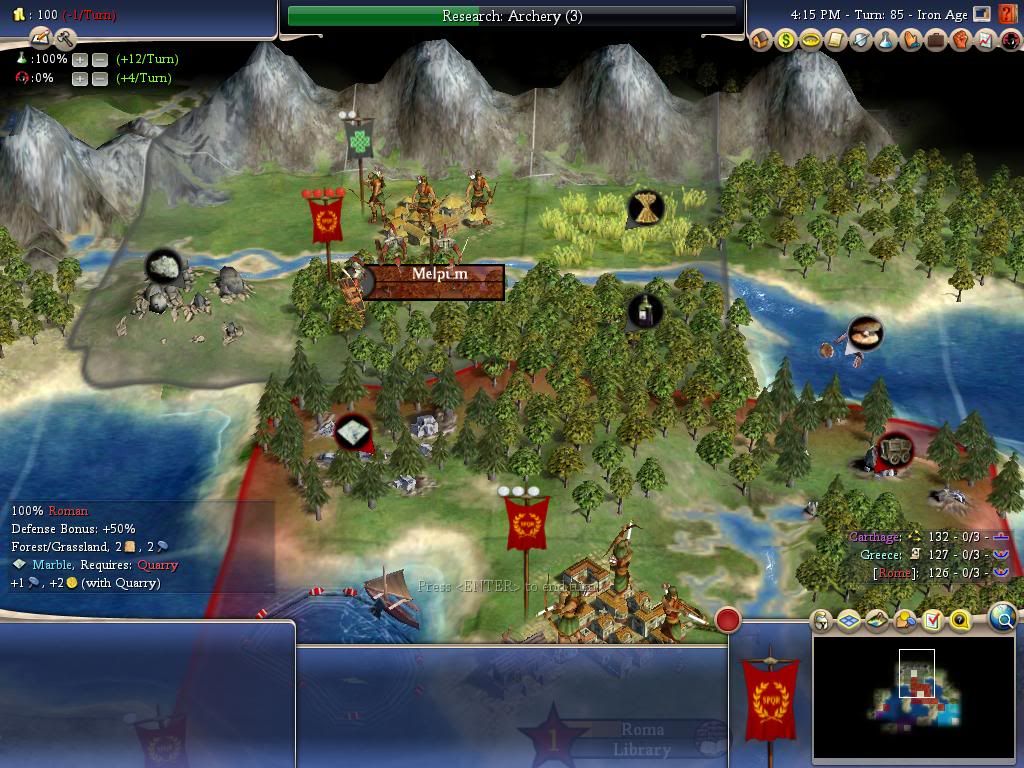
Realizing that by refusing to go over to the Romans that the Celts would be slaughtered to the man, the city surrendered peacefully to the might of Roma, renamed as the city of Mediolanium after a famed warrior.
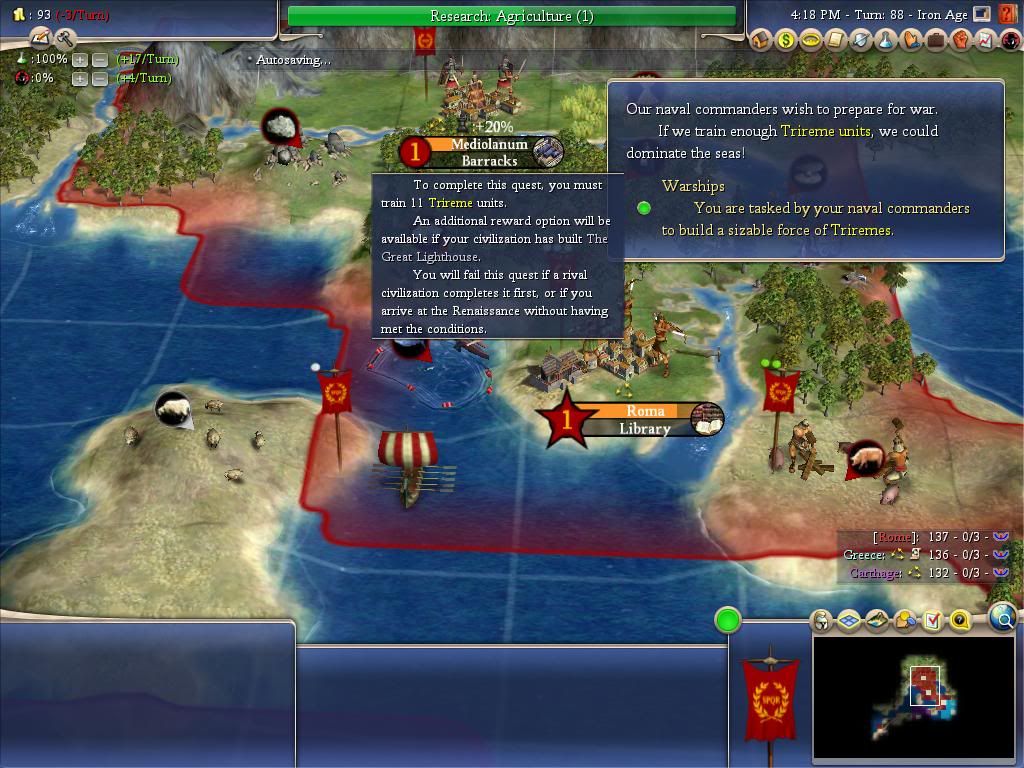
Multiple generals and admirals of the Roman navy and army came to the Senate and it's leader Marcus Titus, asking him to build a fleet of triremes to dominate the seas. Marcus laid down the Naval codes with support from the patricians of the Roman senate, an act to try and produce as many triremes as possible to fill the quota.
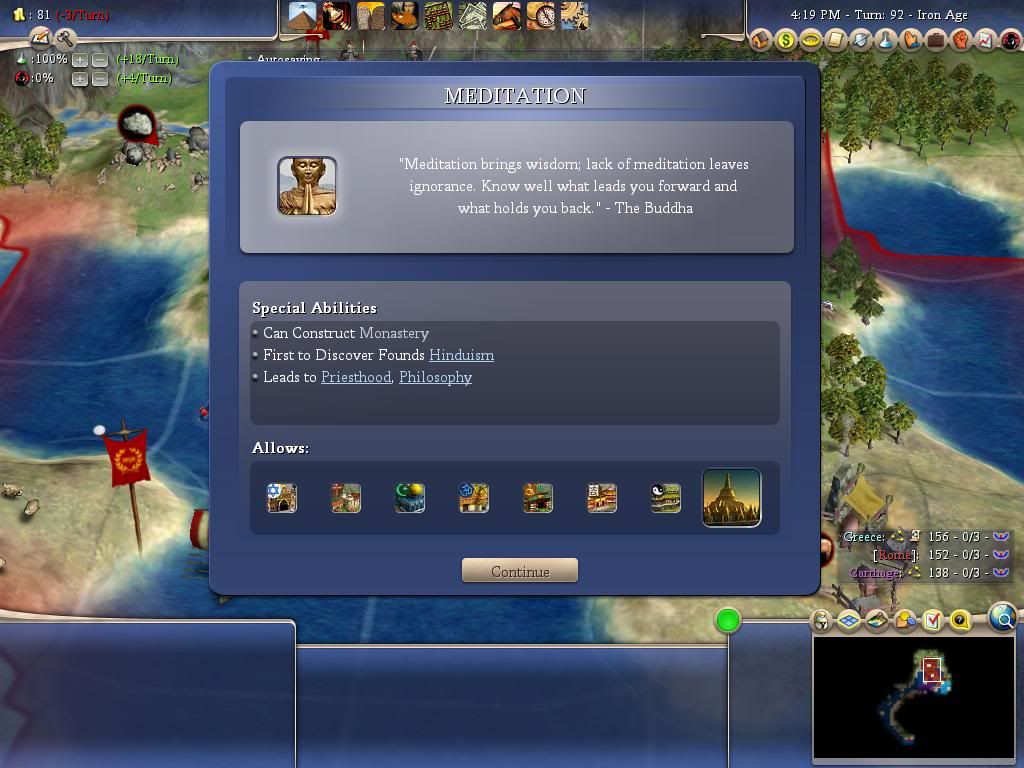
The art of meditation was founded by a Roman thinker Publius Remus, who dedicated his life to serving and worshipping the gods, praying to them and making offerings and sacrifices. It is said that he would walk across hot coals while praying to the gods, but these reports are rather biased and unfounded.
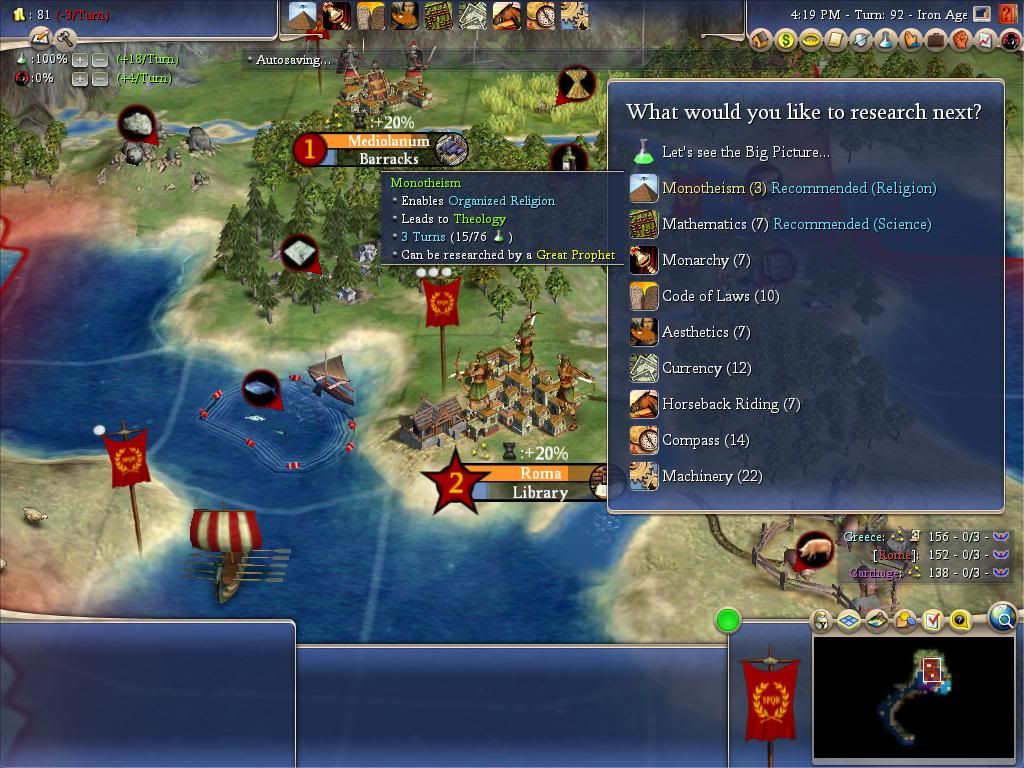
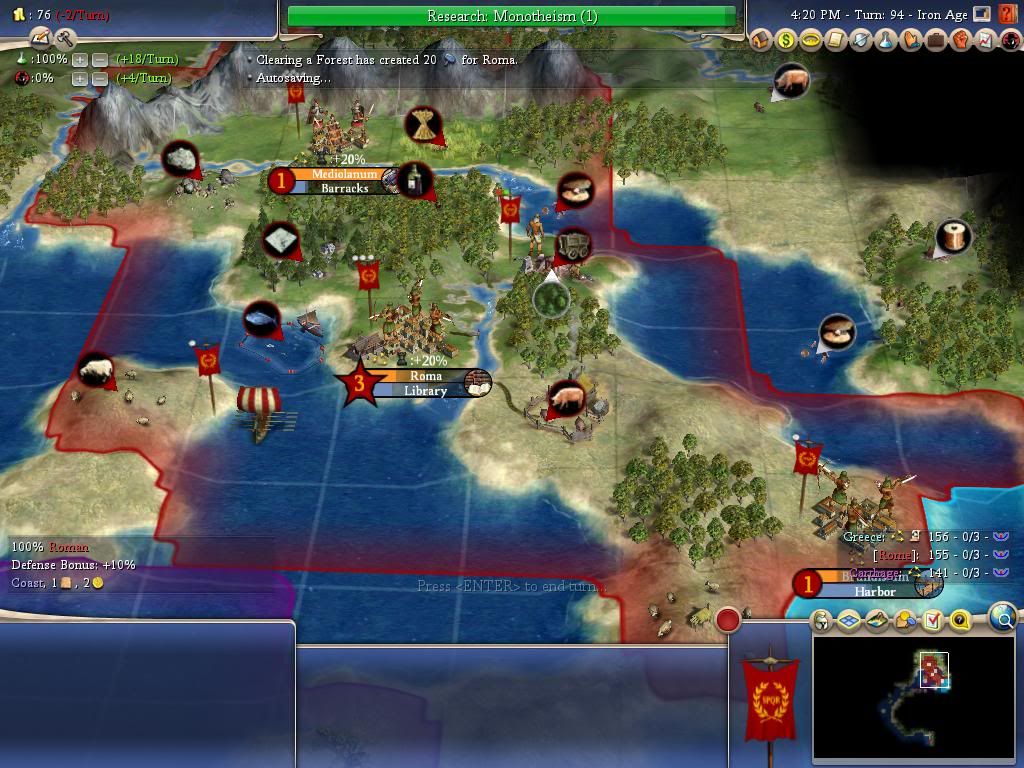
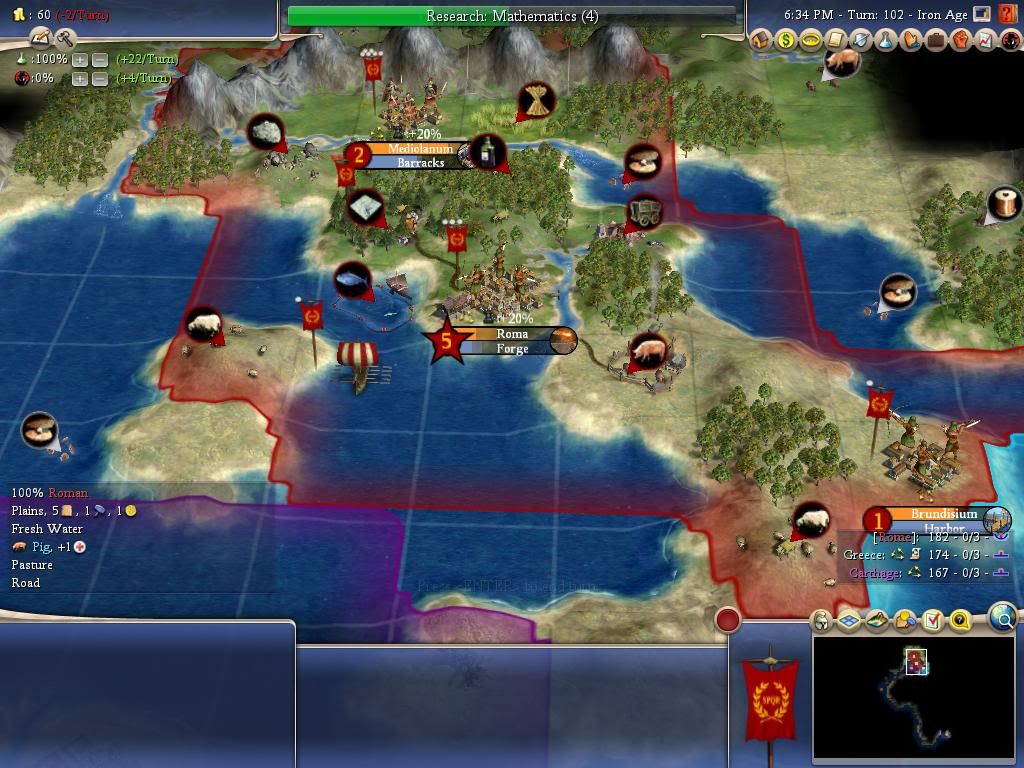
The city of Brundisium was founded by several Roman settlers seeking to leave the city of Rome and establish a life on the southern part of the Italian peninsula. They left Roma with the blessing of the Senate with a token escort. The city was in a prime location; just a stone's throw away from the Grecian lands, Brundisium would provide valuable in later years as a trade port to and from the city states of Greece.
So now, I present to you.....
ROME: THE CONQUERING EMPIRE
Part 1: The Founding of Rome


Rome. The Eternal City, said to have been founded by the brother Romulus after having a fit of rage and stabbing his brother to death, burying him under the area where the city was later established. Historians have collected countless amounts of texts, scripts, books, and tomes of lore and history from the very start of the Roman people to the present day.
Most historians today now believe that the city of Rome was not founded after the brother Romulus stabbed his brother Remus, but rather it grew up as a trading town on the Italian peninsula, the crossroads between the Northern area of the strip of land, and the southern heel of the rocky area. Wandering peoples established their city on the present ground of Roman territory, influenced by the Etruscan society who had taught them how to use metal weapons, make houses and structures out of brick and stone instead of wood and thatch, and taught them the trappings of past technology. Before the Roman people killed them of course, cutting them down like so much wheat before a scythe. But that is for a different story, a different book.
Rome's location was a prominent one here in the world, the center of the known world people like the Greeks and the Carthaginians had said, as well as the Phoenicians. According to Greek legends, when the fall and the sacking of the city state once known as Troy occured, Aeneis and his wife, grandparents, and children fled along with a few other survivors on a galley southward out of Anatolia, away from the treacherous Greeks. They sailed along the Mediterranean coast, going to Carthage, before finally settling around the spot that one day became Rome, with Etruscan help along the way. Of course, at the same time the text that describes the travels of the exiled people of Troy was told by the legendary poet Alan Poe in 29 B.C., so the details of that legend are a little sketchy. Nonetheless, Rome's northern position above Carthage allowed it have bountiful trade routes to enjoy with the Tunisian neighbor.

After the founding of Roma, several legions of Praetorians moved northward with a group of settlers to see if they could settle the rest of the surrounding lands of the Italian peninsula. After five or so years of hard marching, they reached the outskirts of the Celtic settlement of Melpum.

Realizing that by refusing to go over to the Romans that the Celts would be slaughtered to the man, the city surrendered peacefully to the might of Roma, renamed as the city of Mediolanium after a famed warrior.

Multiple generals and admirals of the Roman navy and army came to the Senate and it's leader Marcus Titus, asking him to build a fleet of triremes to dominate the seas. Marcus laid down the Naval codes with support from the patricians of the Roman senate, an act to try and produce as many triremes as possible to fill the quota.

The art of meditation was founded by a Roman thinker Publius Remus, who dedicated his life to serving and worshipping the gods, praying to them and making offerings and sacrifices. It is said that he would walk across hot coals while praying to the gods, but these reports are rather biased and unfounded.



The city of Brundisium was founded by several Roman settlers seeking to leave the city of Rome and establish a life on the southern part of the Italian peninsula. They left Roma with the blessing of the Senate with a token escort. The city was in a prime location; just a stone's throw away from the Grecian lands, Brundisium would provide valuable in later years as a trade port to and from the city states of Greece.


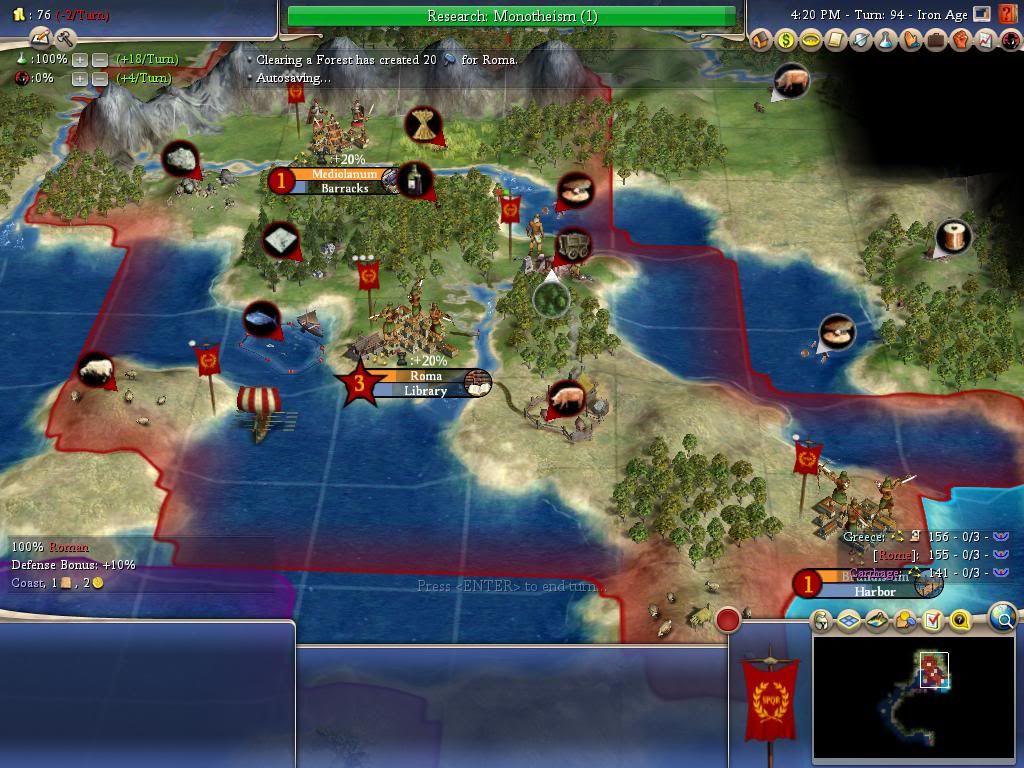
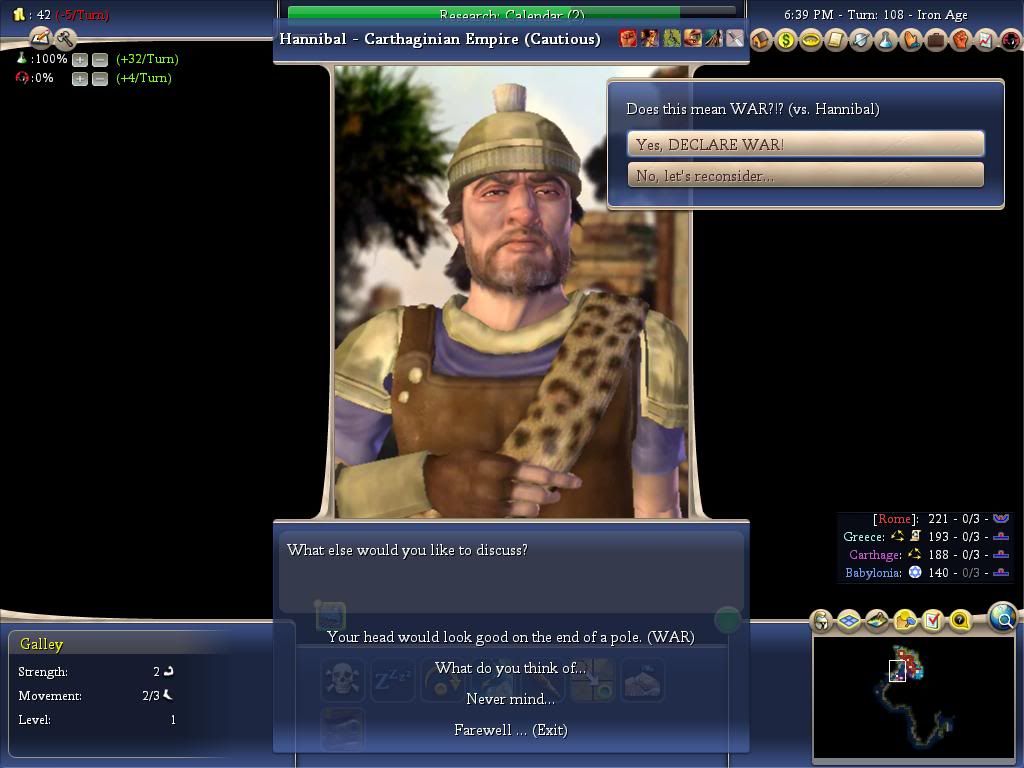
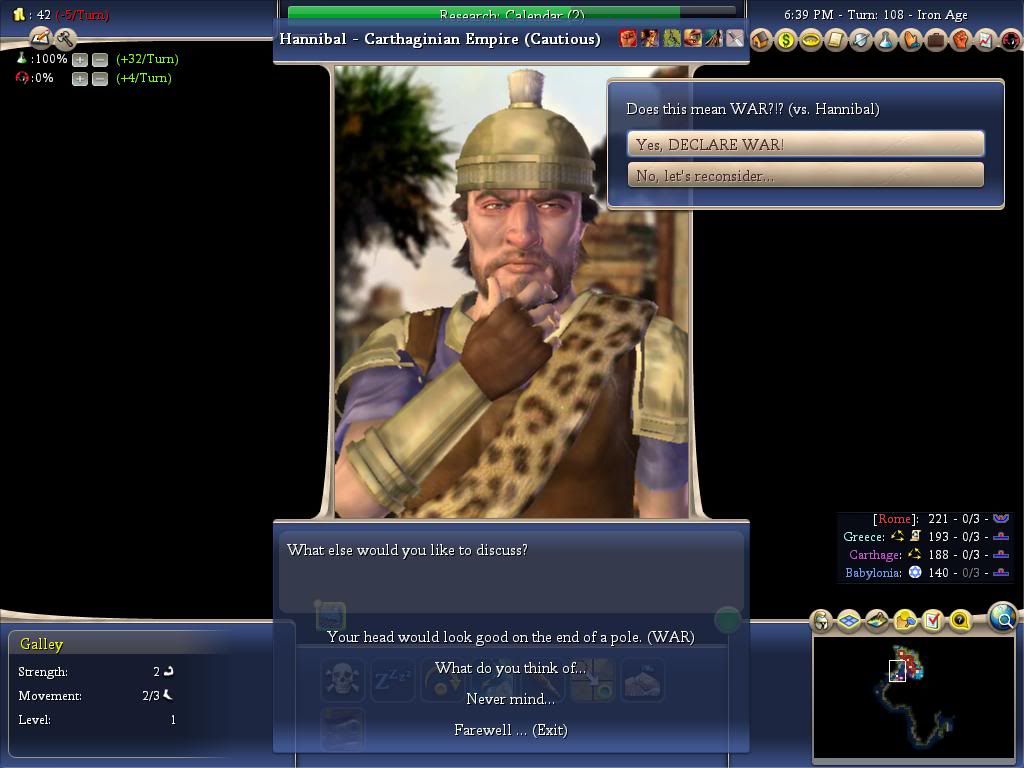
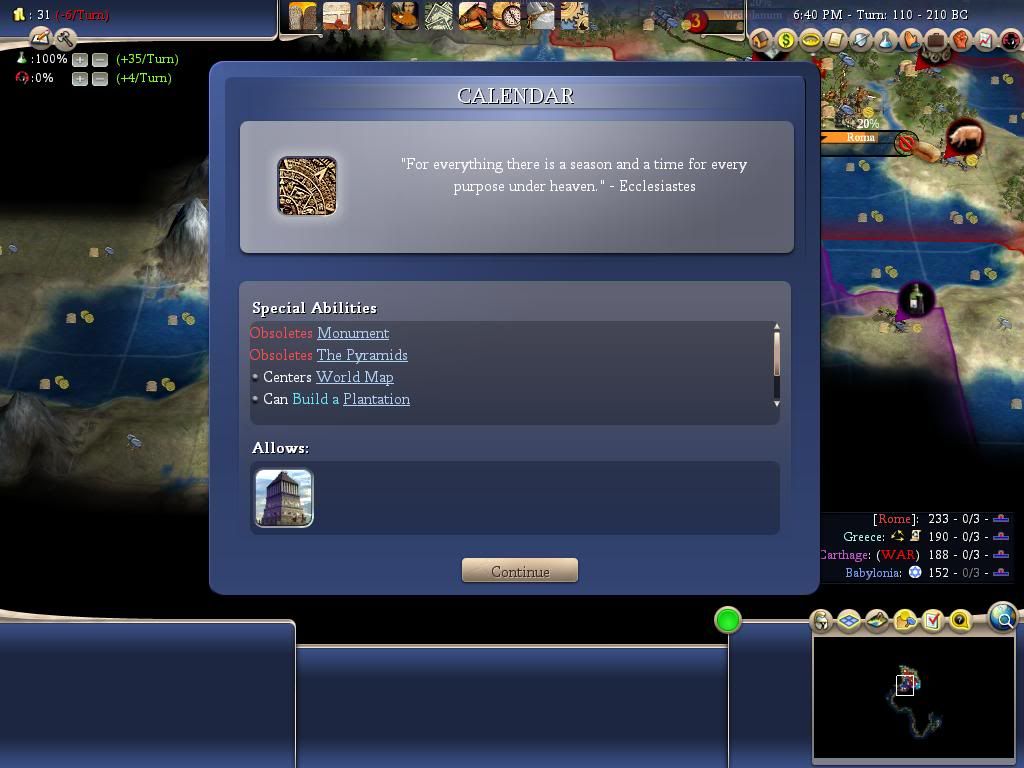
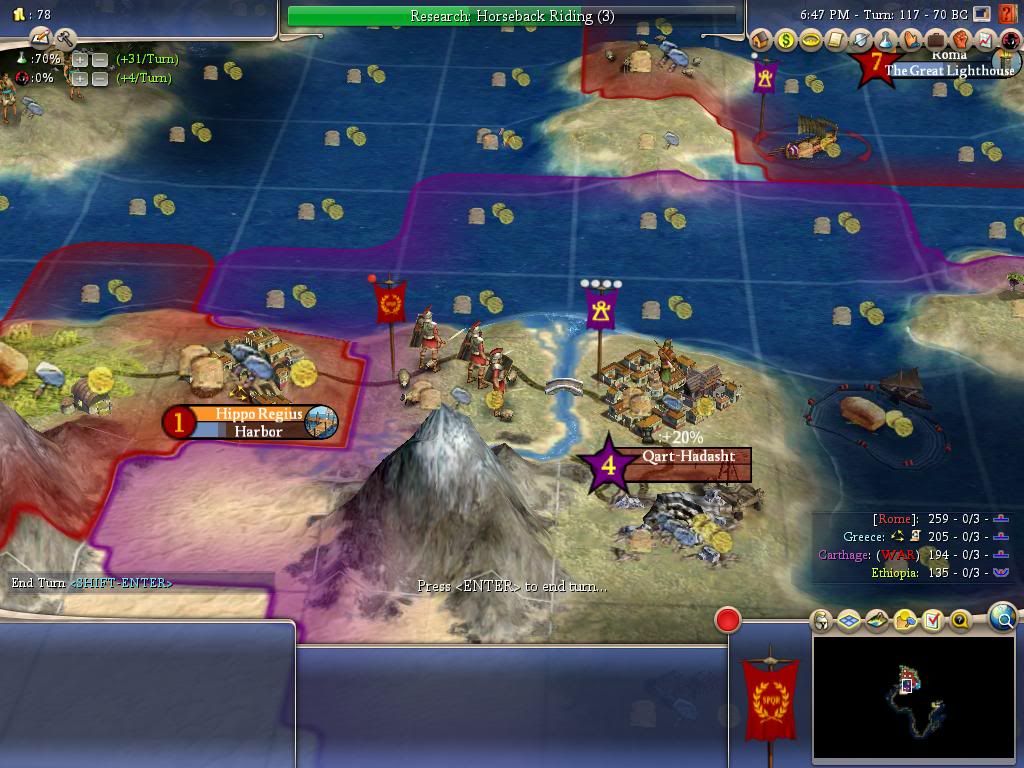
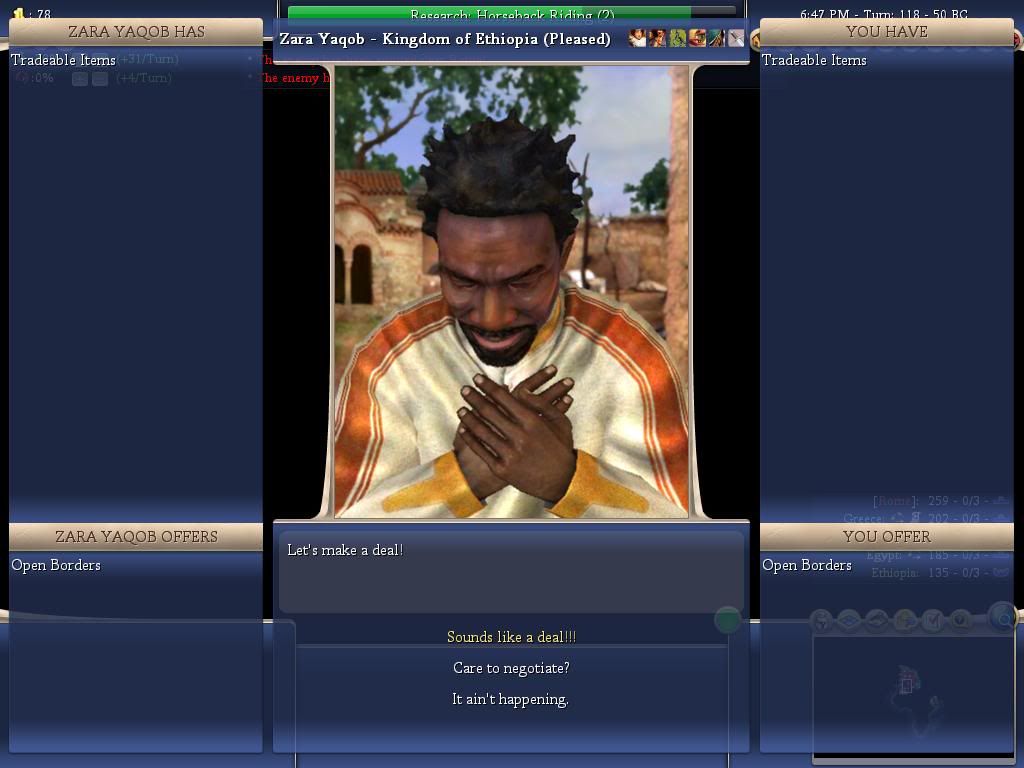
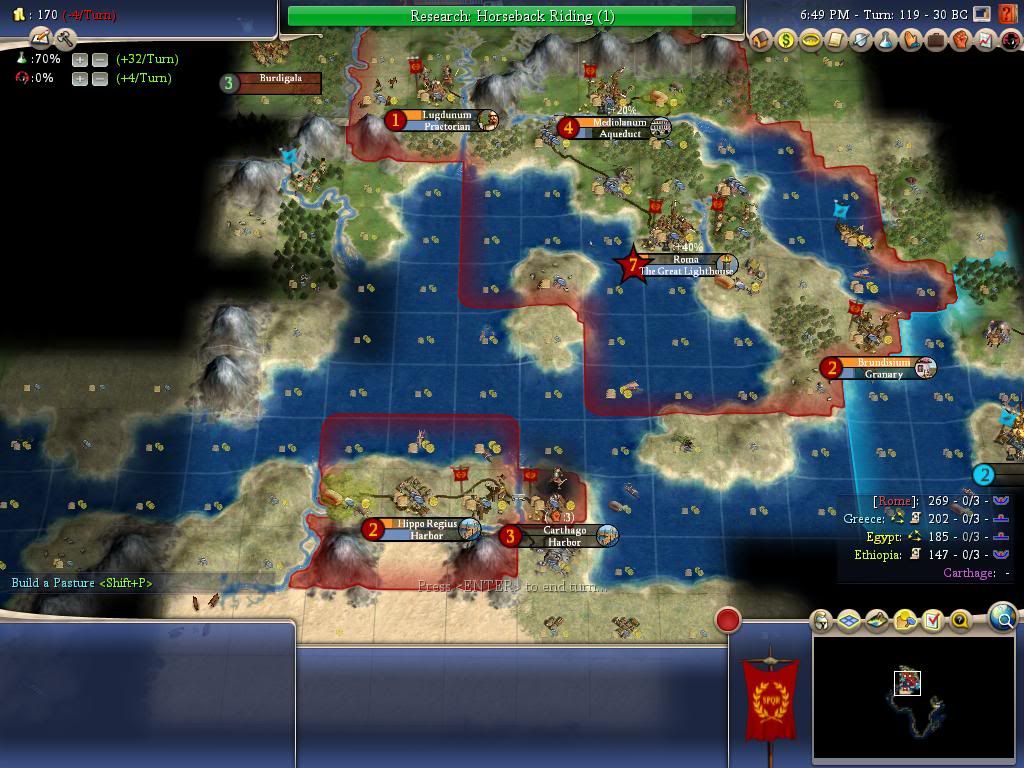
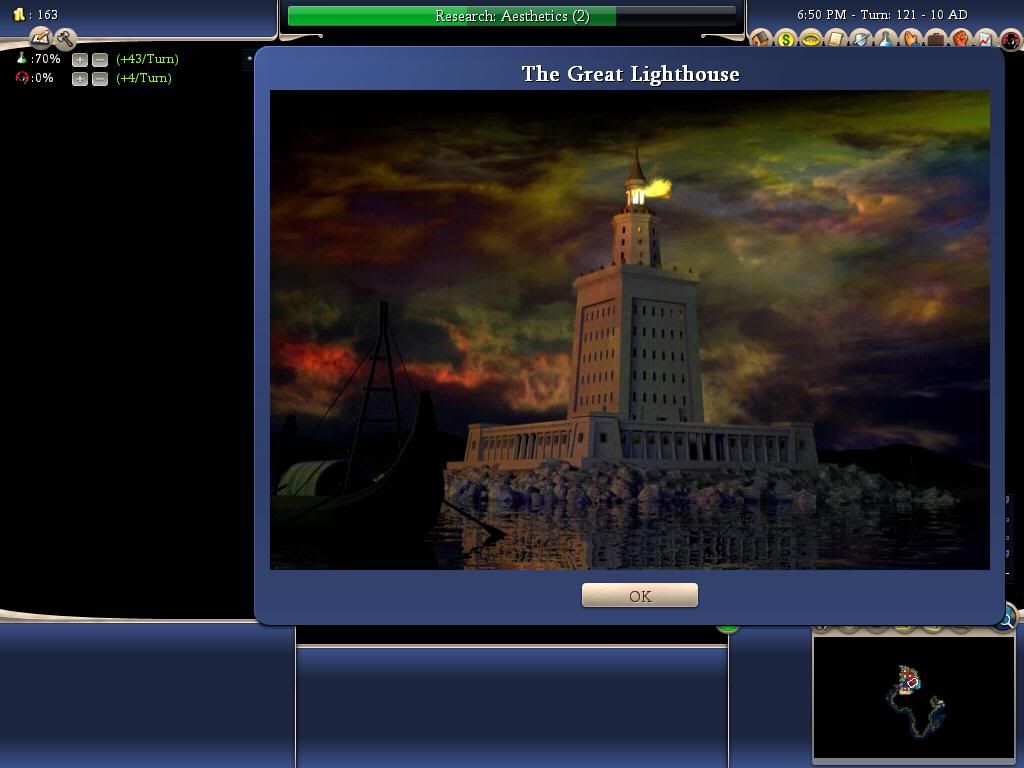
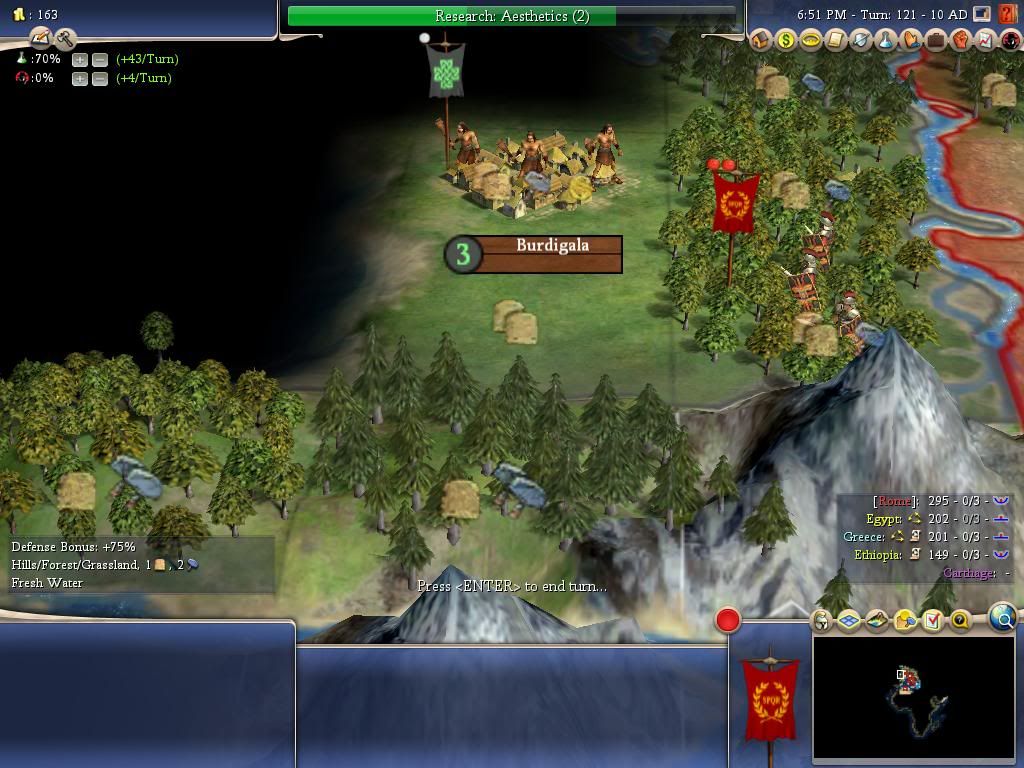
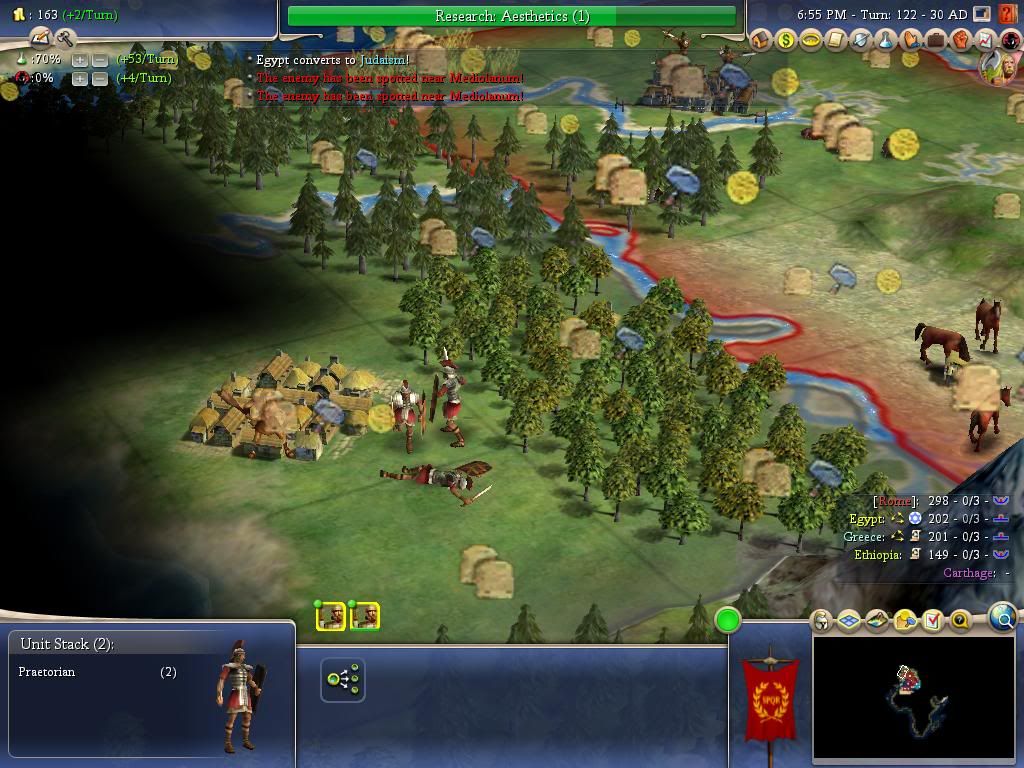
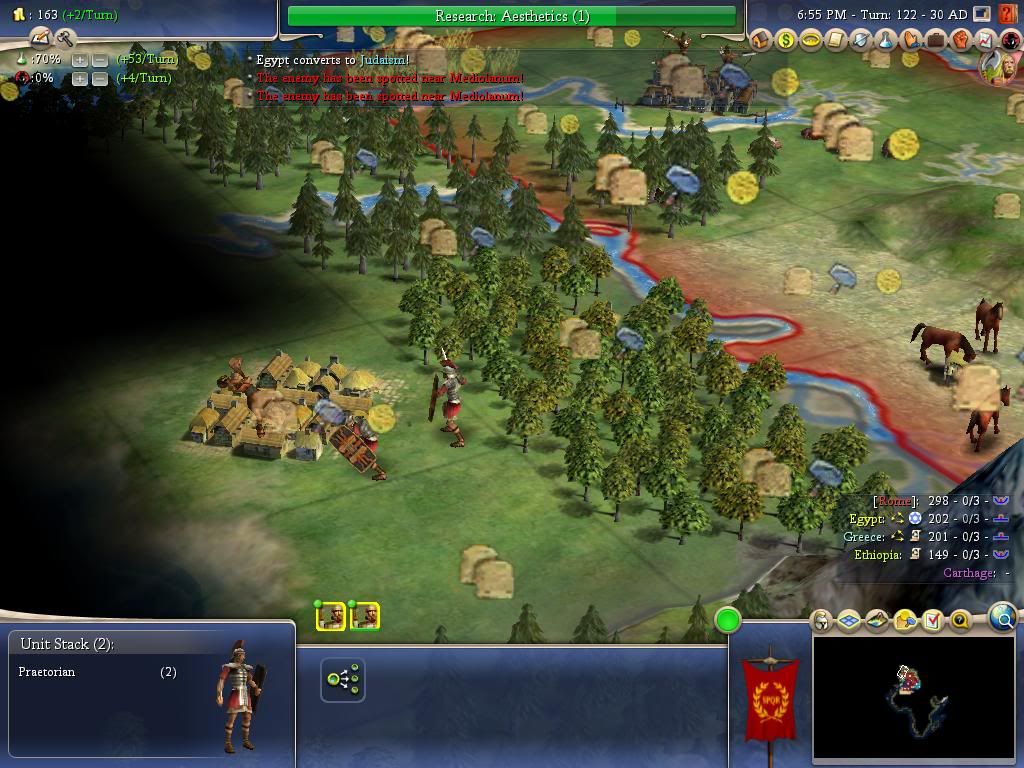
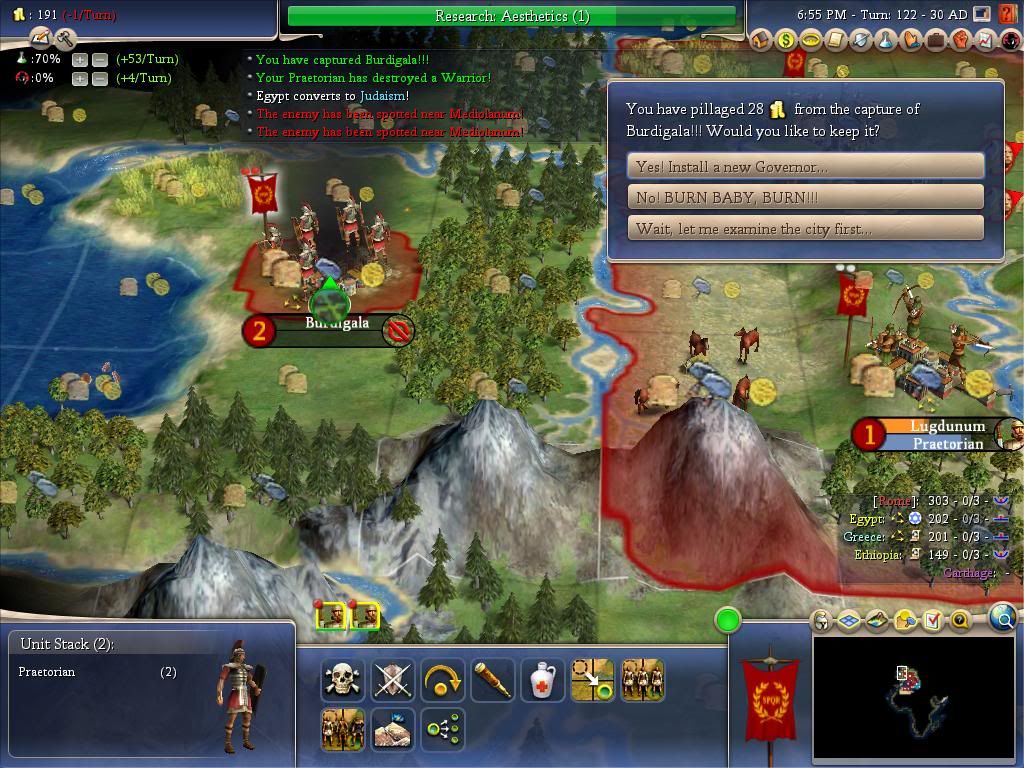
 , for me at least
, for me at least
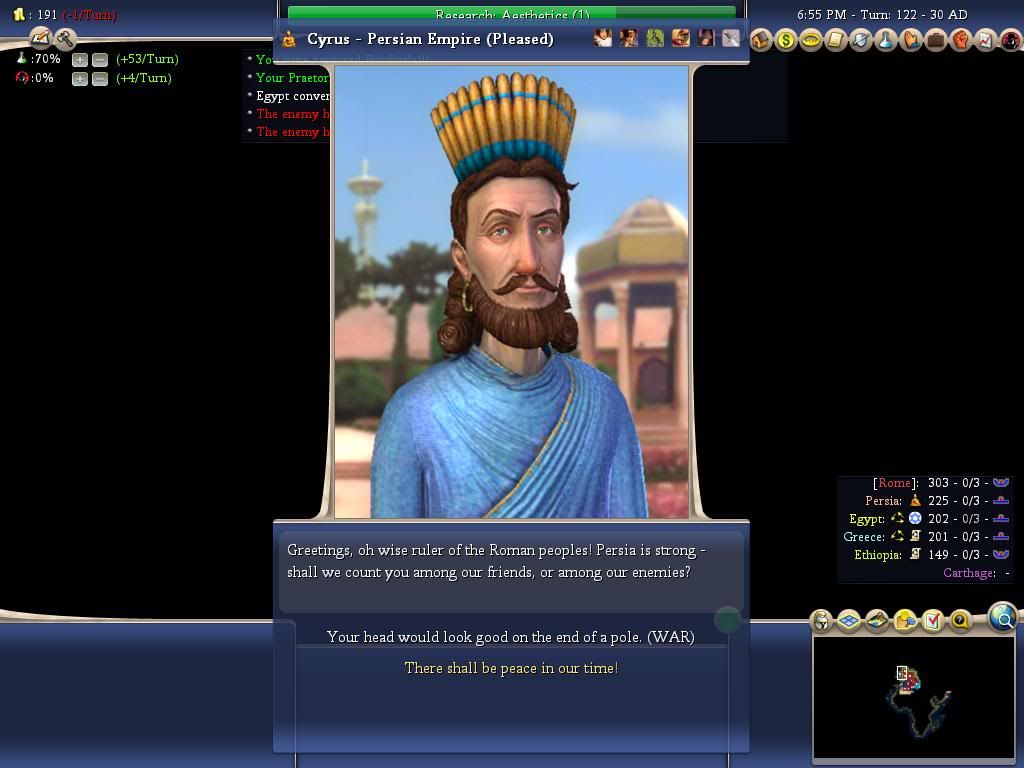
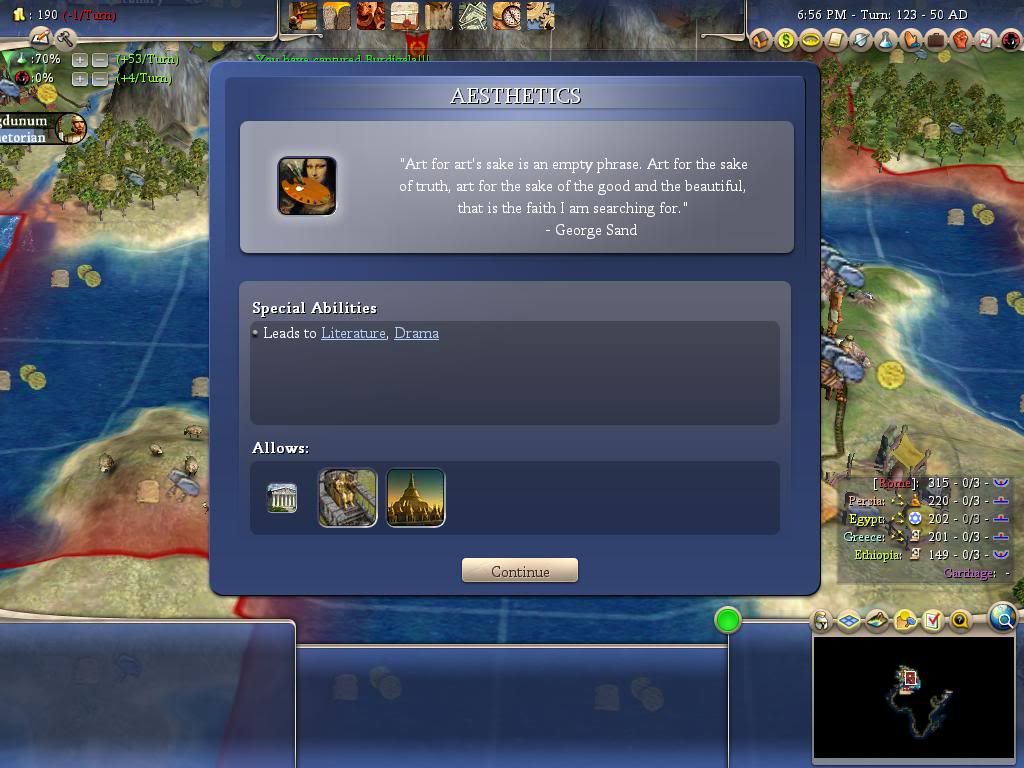
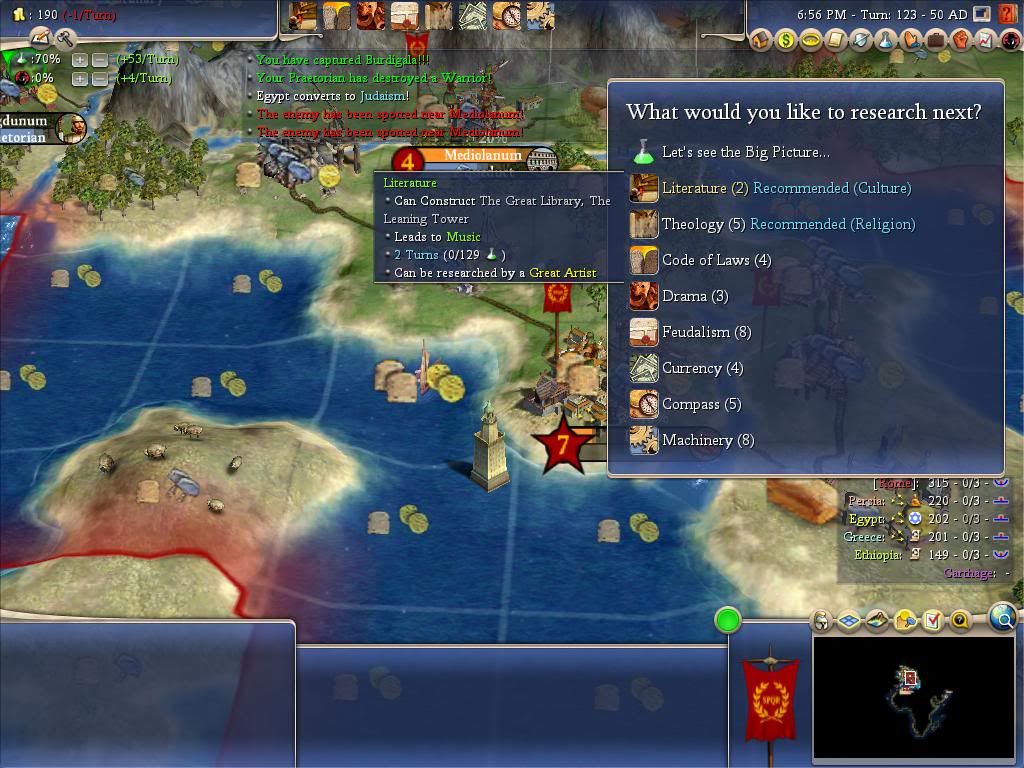
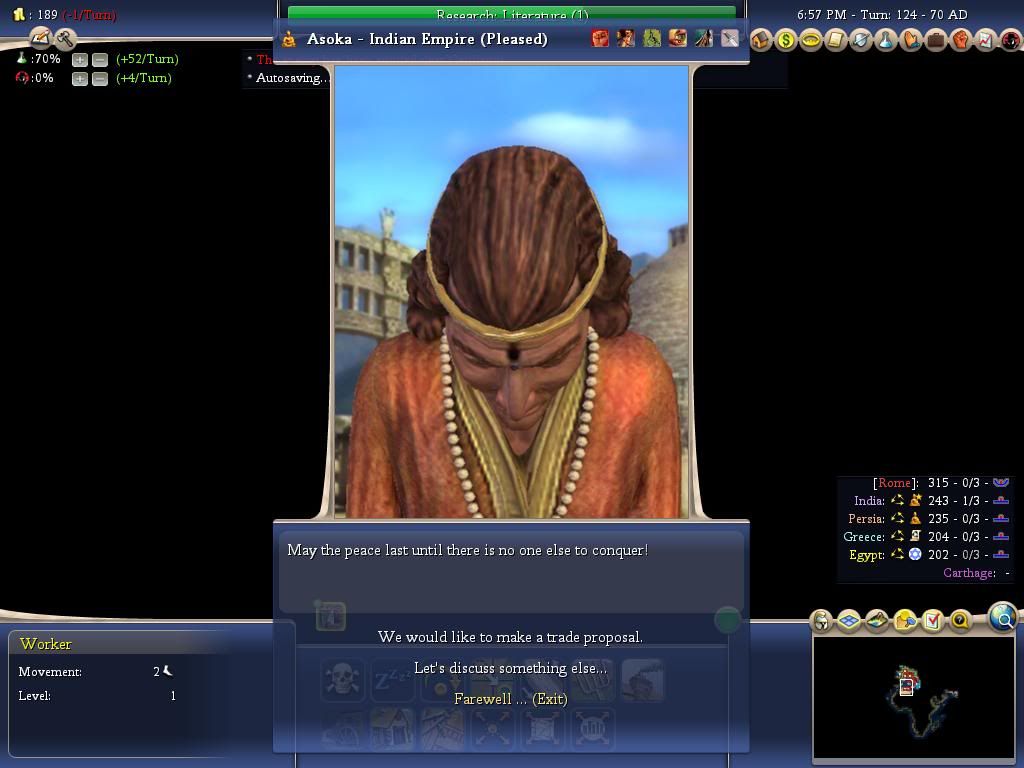
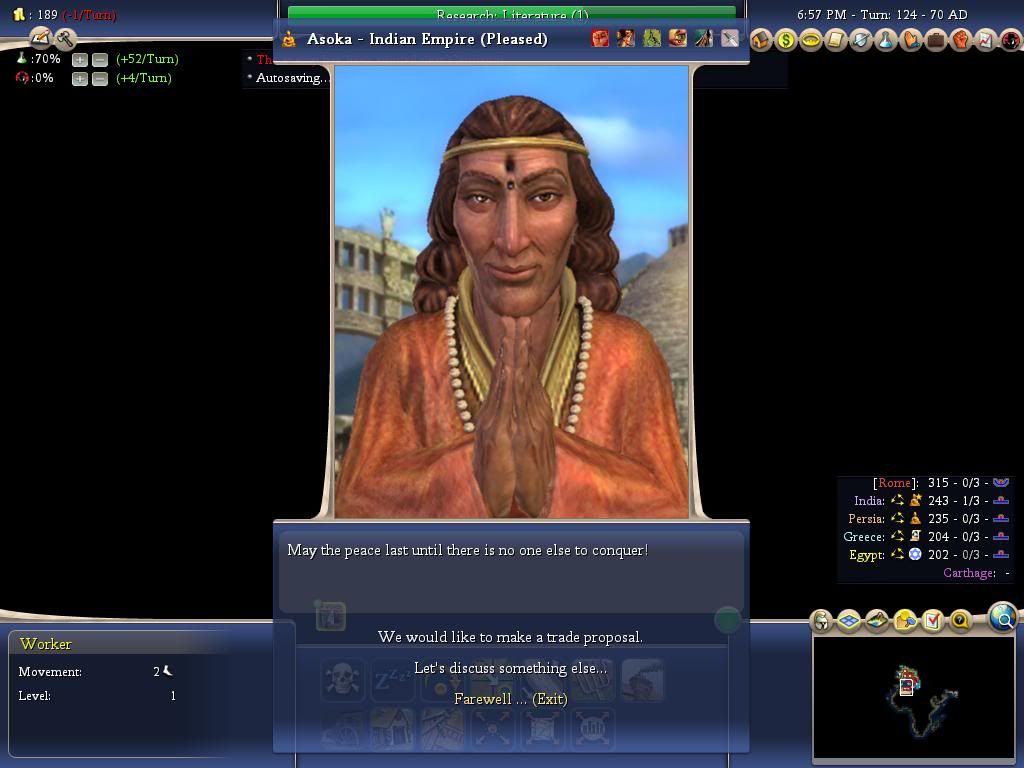
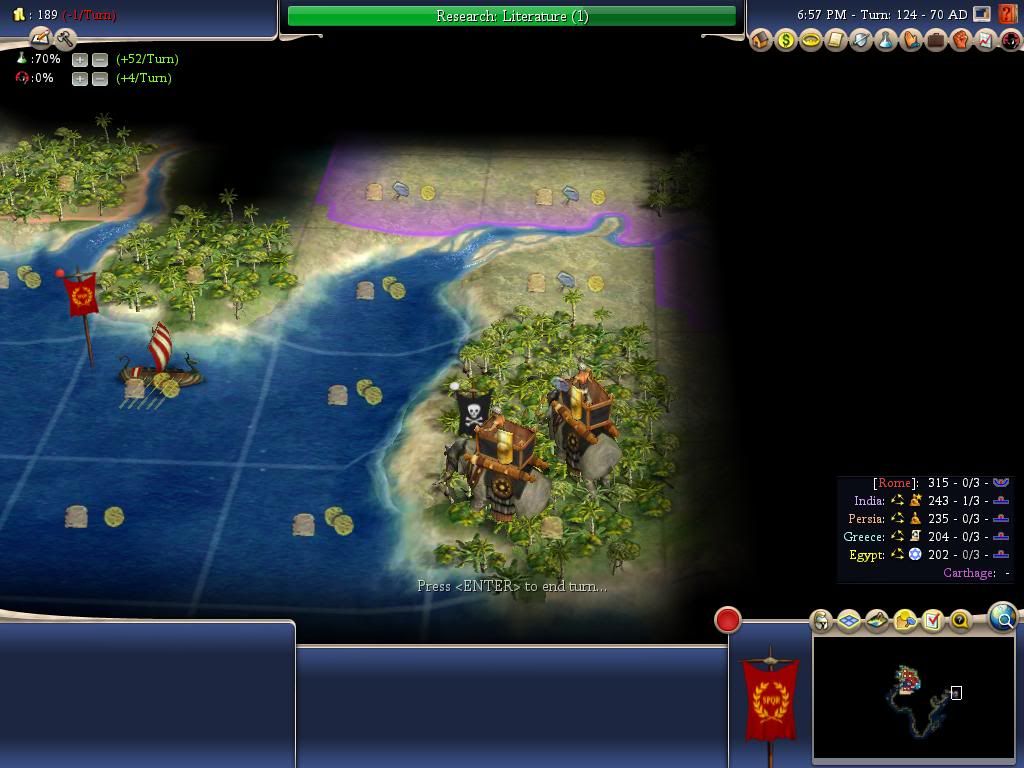
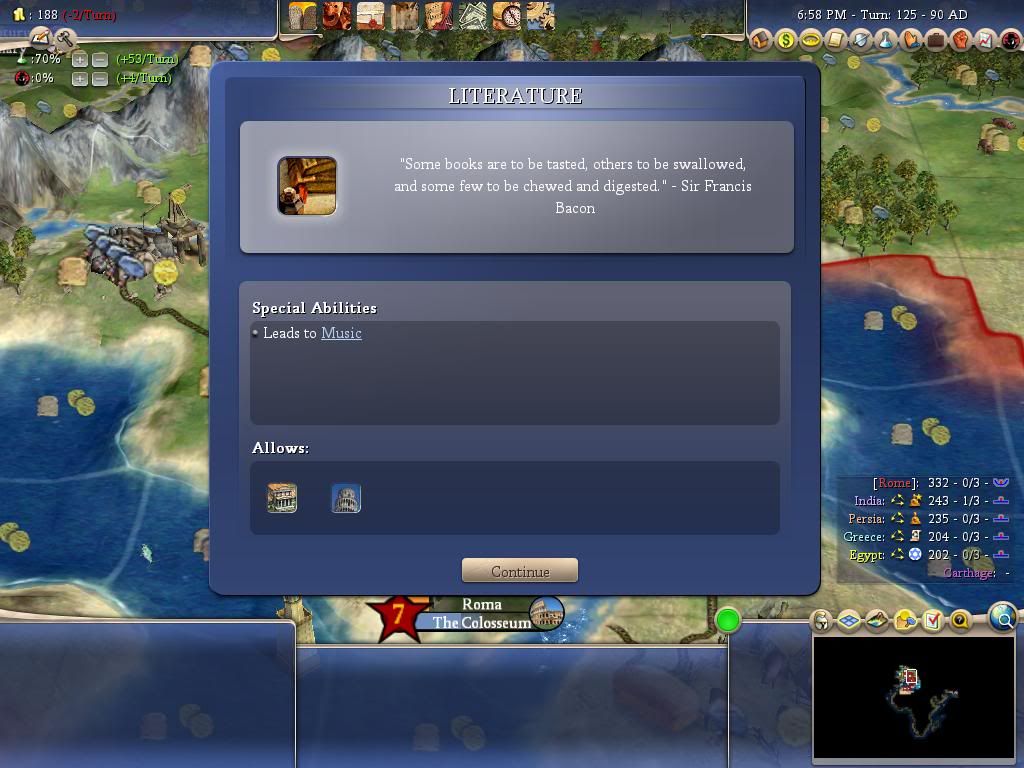
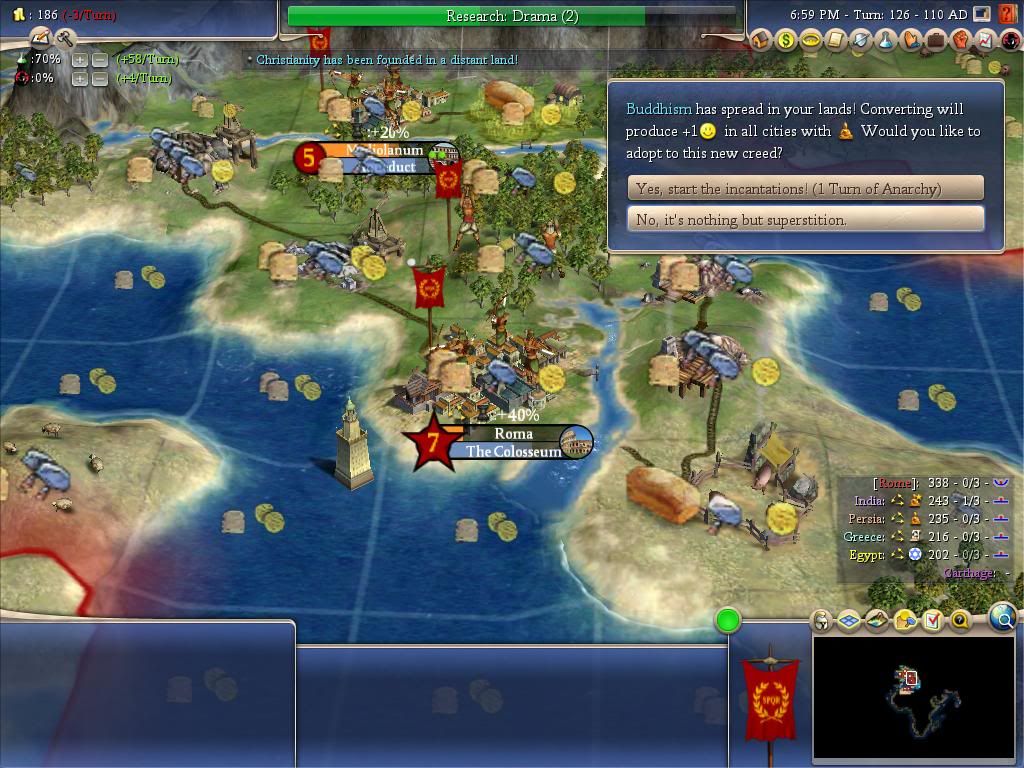
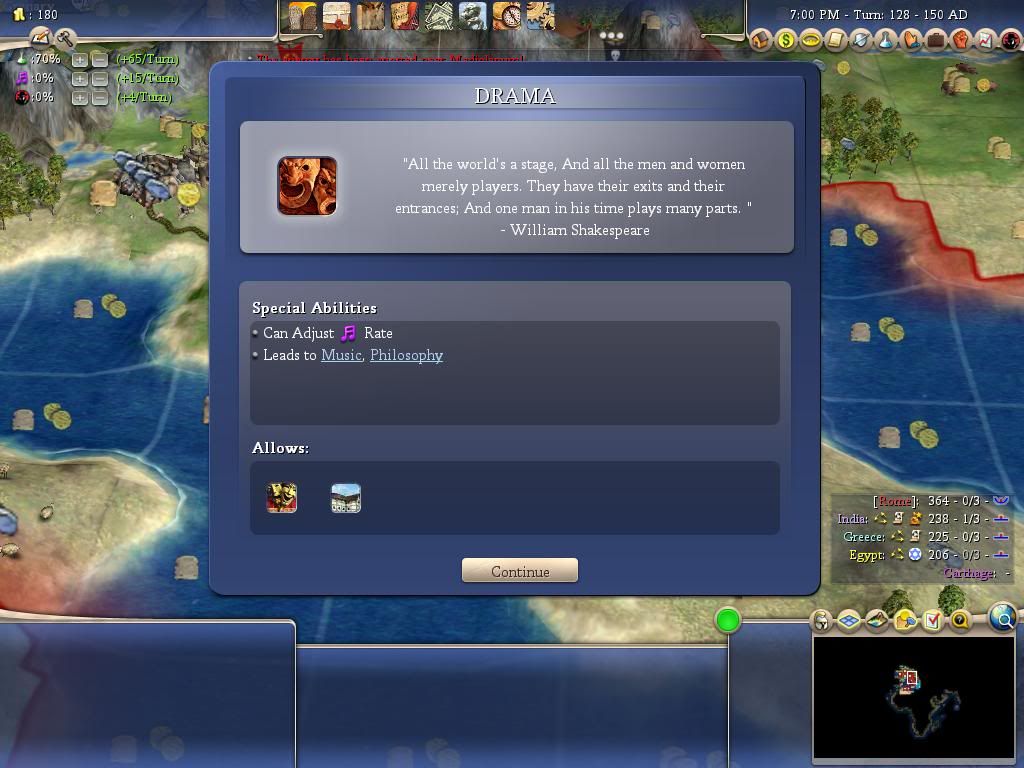
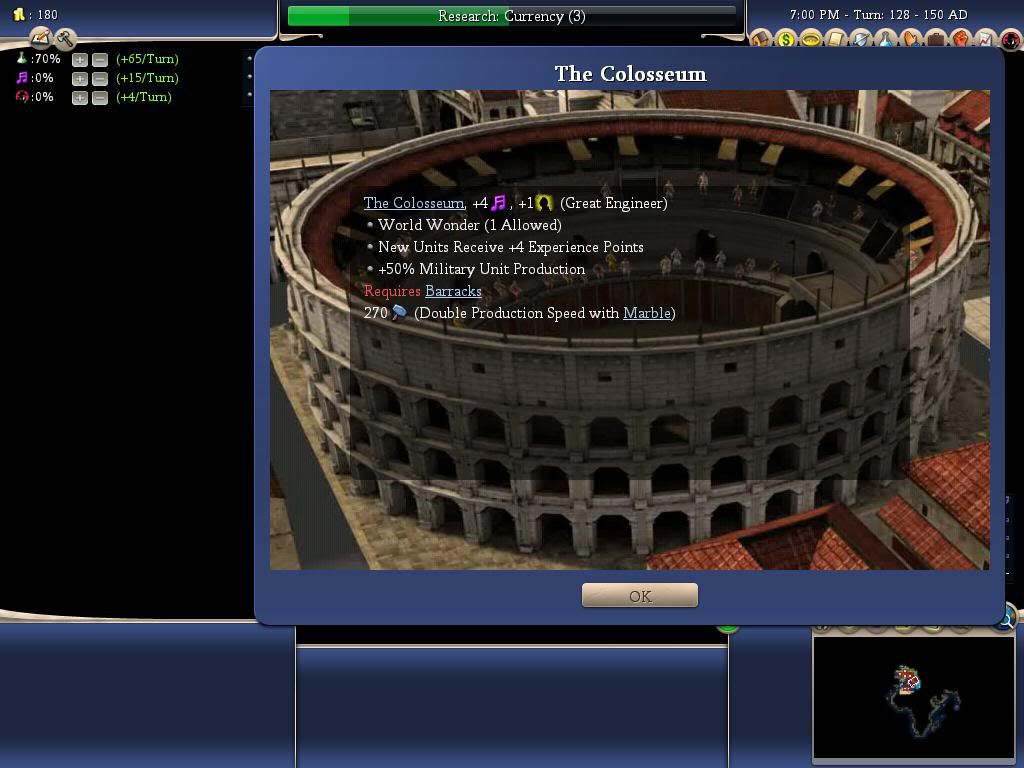
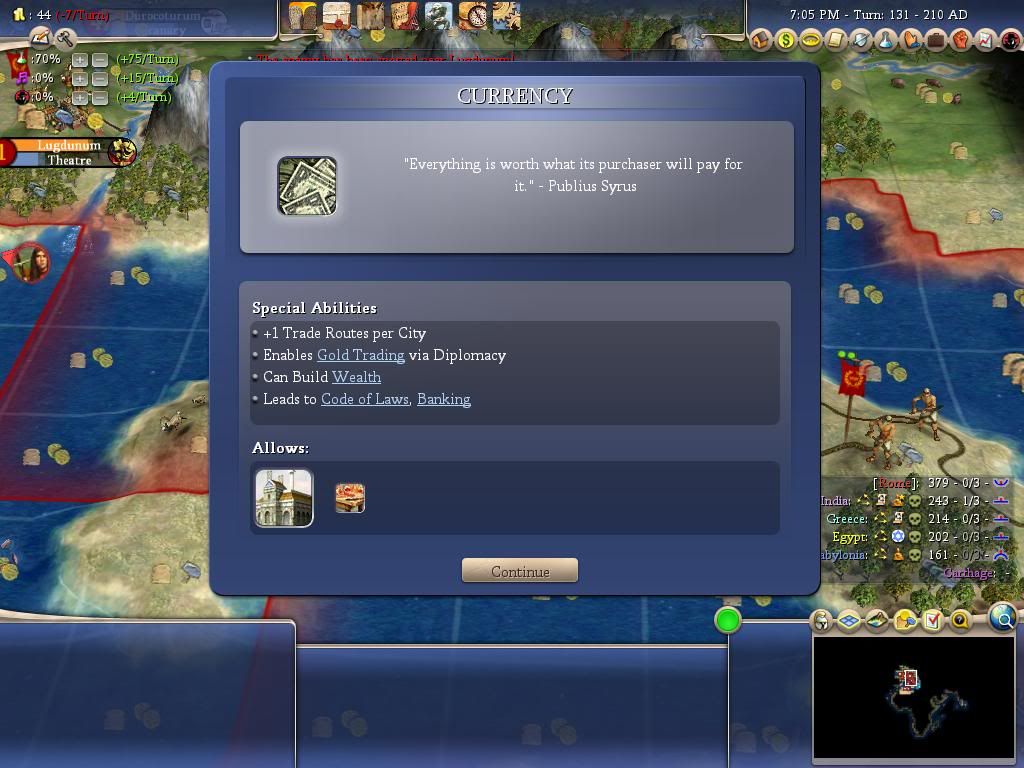
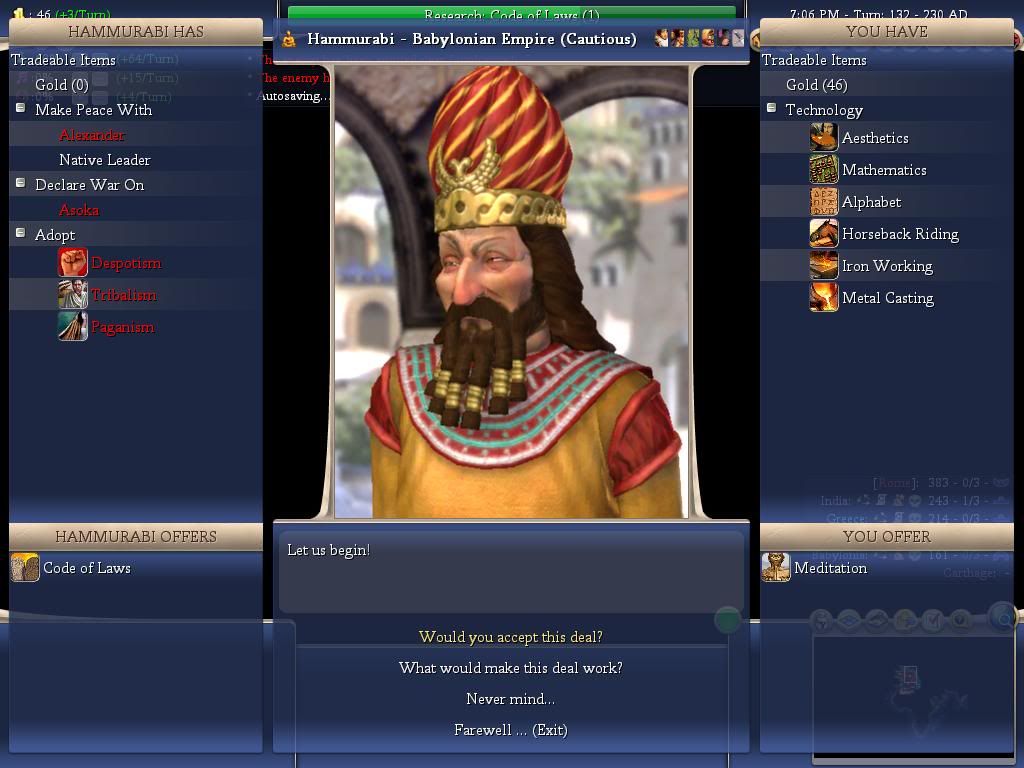
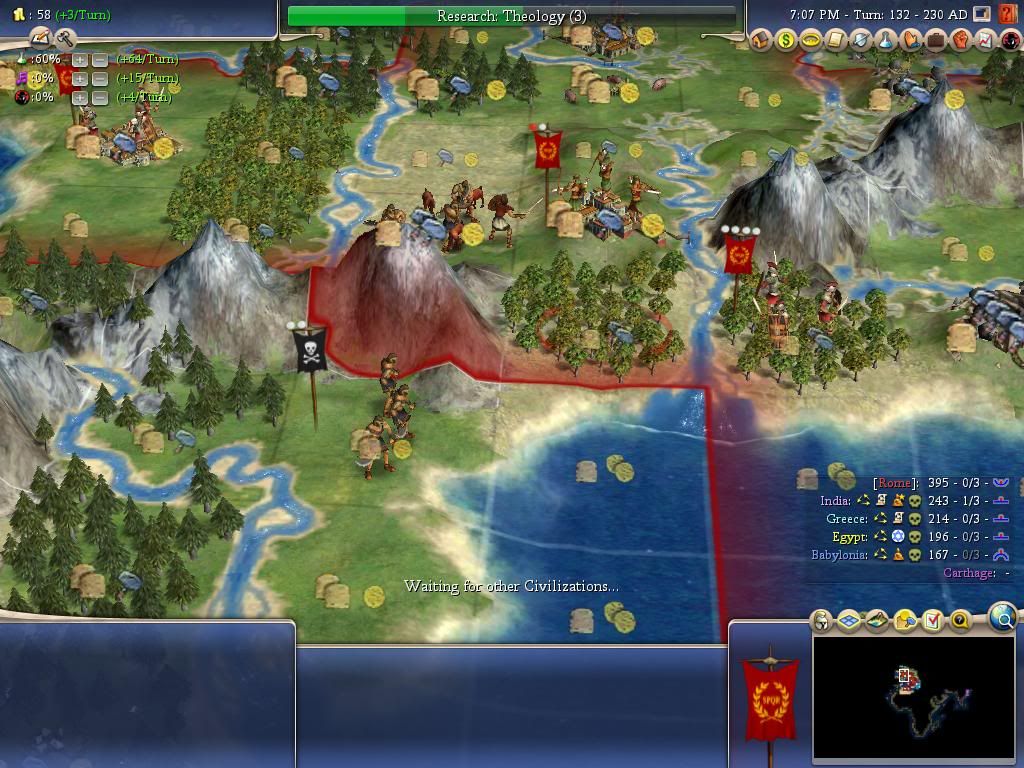
 .
.